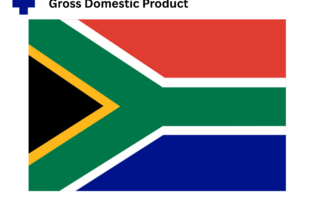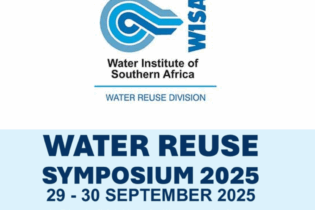Caption: Jayne Mammatt, the associate director of sustainability and integrated reporting at PricewaterhouseCoopers
RĕSource hosted a one-day seminar yesterday, November 15, on Preparing for Carbon and Environmental Taxes. The day was a roaring success with great participation from the delegates who pumped the speakers for every ounce of information possible. Jayne Mammatt, the associate director of sustainability and integrated reporting at PricewaterhouseCoopers (PwC) spoke of the Carbon Disclosure Project Global 500 Climate Change Report of 2012. Did you know that at the current rate of resource usage, we are using 2.3 times the resources our planet can offer up? Divers of resource scarcity include a sharp increase in population, expected to reach nine billion by 2048, the shifting of the global economic power, where BRIC will hold 41% by 2050 and the rapid expansion of the middle class. The response to this scarcity? A massive global land grab. In essence, the Global 500 companies are not doing enough but that is not all. To achieve a two-degree reduction in temperature, South Africa needs to cut carbon intensity gy 5.6% every year until 2050. China needs to reduce it by 6.1%, India by 4.4%, Brazil by 4.1% and the US, EU and UK, each by 5.2%. Hardly attainable and as such, we must prepare for a warmer world and the erratic climate this will bring. The founder and director of Promethium Carbon, Robbie Louw, discussed the impact of climate change. Louw says that the mean rainfall, for example, is not increasing but there is an increase in storms and dry periods. Hence, over a season, the numbers may be the same but the ferocity of the wet and dry seasons increases. This impacts water storage for example, along with infrastructure for water control. It has impacts too on community vulnerability. Caption: Founder and director of Promethium Carbon, Robbie Louw
Did you know that civil unrest, including the Arab Spring, for example, is related to food prices? Each time a major civil event occurs, it can be linked to an increase the cost of food. Marikana for example, was linked to an increase of 40% after the severe drought in the US and the destruction of the maize crop in that country. As Louw rightly says, “No one has ever died of hunger in peace.”
Kyle Mandy, PwC’s head of National Tax Technical, unpacked the possible impact of carbon and environmental tax. In essence, we do not know anything and that which is currently being proposed, will need amendments for the tax to be in line with Treasury’s objectives of what a tax should be. This includes certainty and the determination of liability and hopefully too, an environmental contribution along with revenue. Possible future environmental taxes may include wastewater levies, air pollution charges, levies on waste products, landfill taxes, traffic congestion charges, motor vehicle licence fees and transport fuels.
Caption: Founder and director of Promethium Carbon, Robbie Louw
Did you know that civil unrest, including the Arab Spring, for example, is related to food prices? Each time a major civil event occurs, it can be linked to an increase the cost of food. Marikana for example, was linked to an increase of 40% after the severe drought in the US and the destruction of the maize crop in that country. As Louw rightly says, “No one has ever died of hunger in peace.”
Kyle Mandy, PwC’s head of National Tax Technical, unpacked the possible impact of carbon and environmental tax. In essence, we do not know anything and that which is currently being proposed, will need amendments for the tax to be in line with Treasury’s objectives of what a tax should be. This includes certainty and the determination of liability and hopefully too, an environmental contribution along with revenue. Possible future environmental taxes may include wastewater levies, air pollution charges, levies on waste products, landfill taxes, traffic congestion charges, motor vehicle licence fees and transport fuels.
 Caption: Kyle Mandy, PwC’s head of National Tax Technical
Caption: Kyle Mandy, PwC’s head of National Tax Technical
 Caption: Promethium Carbon’s Karolina Euler-van Hulst
Envitech’s managing director, Brendon Jewaskiewitz, closed the day with the waste angle. “In light of carbon tax, we will be taxed on waste going to landfill.” Landfill energy programmes which harness the methane rich gas produced at these sites, are also linked to the Clean Development Mechanism in various projects by Envitech. These programmes and their credits, will become increasingly important over the next few years. With a rapidly increasing global middle class, the United Nations Environment Programme was correct when they said “We are facing a global waste crisis.” Until such a time that consumption patterns change, waste will be with us and will too, contribute to climate change not only via methane production but also the transport and related energies used to manage it.
Caption: Promethium Carbon’s Karolina Euler-van Hulst
Envitech’s managing director, Brendon Jewaskiewitz, closed the day with the waste angle. “In light of carbon tax, we will be taxed on waste going to landfill.” Landfill energy programmes which harness the methane rich gas produced at these sites, are also linked to the Clean Development Mechanism in various projects by Envitech. These programmes and their credits, will become increasingly important over the next few years. With a rapidly increasing global middle class, the United Nations Environment Programme was correct when they said “We are facing a global waste crisis.” Until such a time that consumption patterns change, waste will be with us and will too, contribute to climate change not only via methane production but also the transport and related energies used to manage it.
 Caption: Concluding speaker, Envitech’s managing director, Brendon Jewaskiewitz
Caption: Concluding speaker, Envitech’s managing director, Brendon Jewaskiewitz







